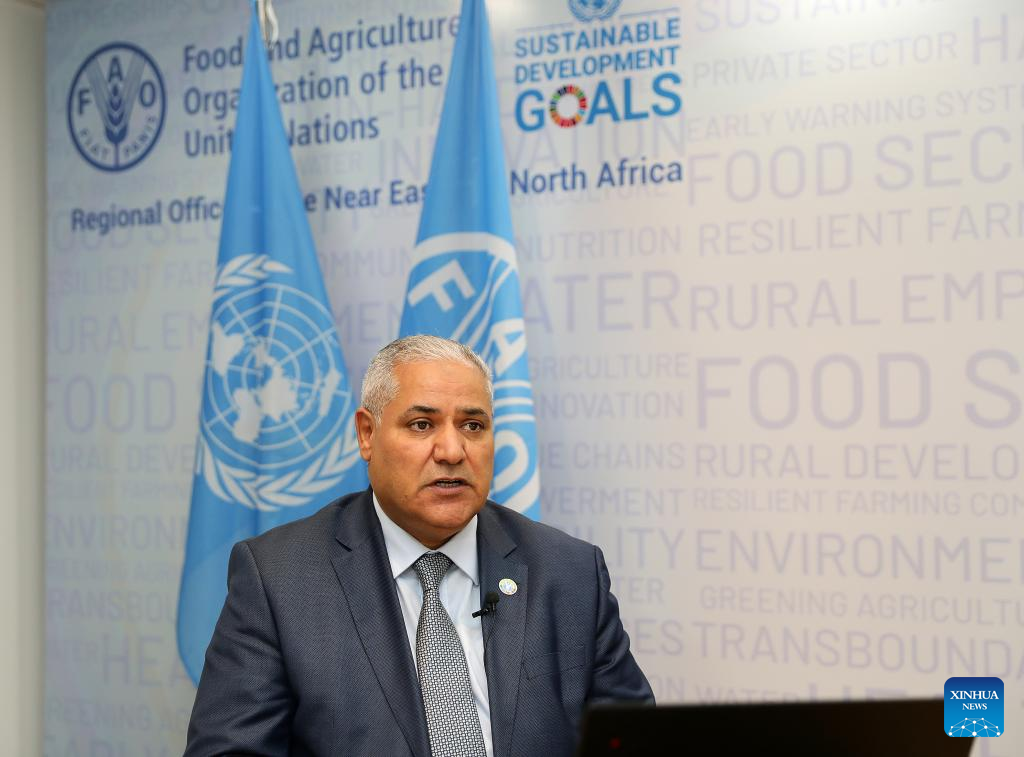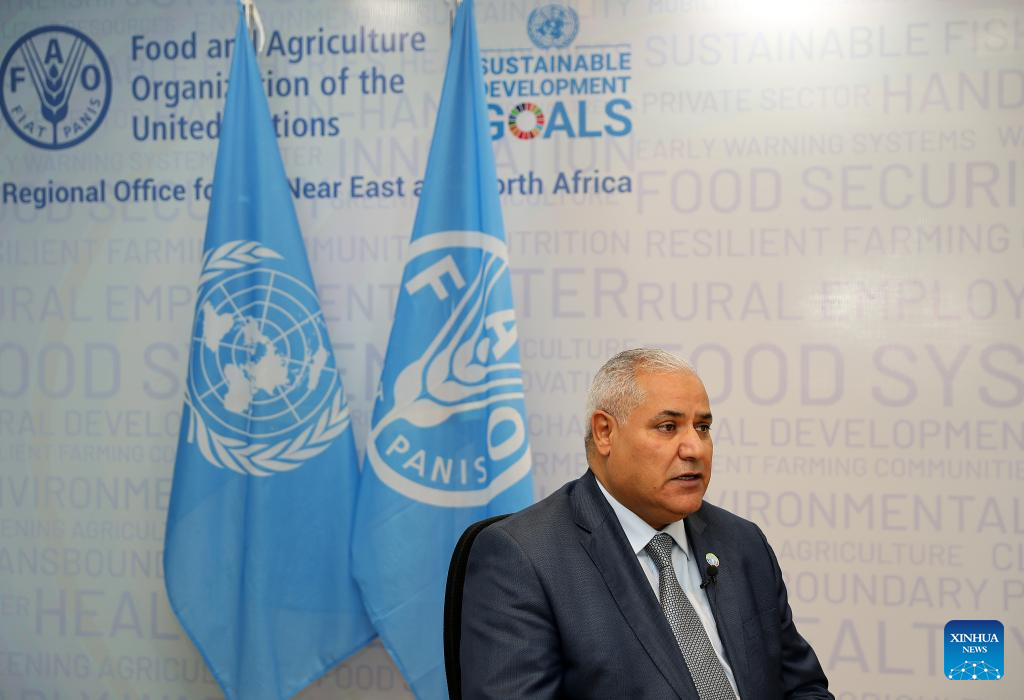
AbdulHakim Elwaer, assistant director-general and regional representative for the Near East and North Africa at the UN Food and Agriculture Organization (FAO), speaks during an interview with Xinhua, in Cairo, Egypt, Jan. 21, 2024. (Xinhua/Wang Dongzhen)
CAIRO, Jan. 29 (Xinhua) -- The prolonged civil conflict in Sudan has plunged 17.7 million people into acute hunger, which requires robust fundraising and other urgent actions to avert an impending humanitarian catastrophe, said a senior official from the UN Food and Agriculture Organization (FAO).
AbdulHakim Elwaer, an FAO assistant director-general and regional representative for the Near East and North Africa, made the remarks in a recent interview with Xinhua, citing the latest update by the Integrated Food Security Phase Classification (IPC).
Elwaer noted that some 3.5 million children are acutely malnourished in the hunger crisis, of whom 700,000 suffer from the most dangerous form of malnutrition -- severe acute malnutrition, and are at risk of dying without treatment.
The senior UN official voiced deep concern about the security situation in Sudan and its implications for vulnerable populations. Nine months after military fighting erupted between the Sudanese Armed Forces and the paramilitary Rapid Support Forces, 25 million people in the country were in dire need of humanitarian aid, according to the UN.
FAO is appealing for an immediate stop of violence from all parties to the conflict and the opening of humanitarian corridors to allow aid workers to have access across the entire territory of Sudan and provide the most needed humanitarian assistance, Elwaer noted.
This is extremely urgent for hard-to-reach places affected by high levels of violence, such as greater Darfur and Kordofan regions, in addition to the areas of Khartoum, Bahri, and Omdurman cities in the Khartoum State, he added.
Meanwhile, "trade disruptions caused by war and surging food and production costs are expected to further exacerbate food consumption gaps, as a result, the food insecurity situation is expected to substantially deteriorate across Sudan as it heads into the typical lean season between June and September," he said.
Immediately after the eruption of the conflict in mid-April 2023, FAO upscaled its emergency response and formulated a plan to reach one million farming households (about 5 million people) with agricultural assistance. In the planting season of 2023, FAO distributed certified seeds to more than one million farmers from across 15 of the country's 18 states, Elwaer said.
He noted that the organization launched a Humanitarian Response Plan this year to fundraise a total of 104 million U.S. dollars to benefit nine million people with multiple interventions.
He explained that if funding is available, FAO can jumpstart a network of staff and local implementing partners, which is already well in place, to take effective steps and help sustain this year's local food production.
These workers would provide farmers with certified seeds of sorghum, millet, sesame and other crops, as well as farming equipment, and assist in livestock herds management and cash transfers, he added.
"We need the involvement of all key development stakeholders, including government, farmers, herders, donors, private sector, civil society organizations and others," he noted.
According to FAO statistics, Sudan has 74 million hectares of arable land and 60 to 80 percent of its population relies on agriculture, fishery and animal husbandry as a main source of food and income, which contributes to about 35 to 40 percent of Sudan's Gross Domestic Product.
The country also serves as a major meat supplier for many African and Arab countries, as it owns over 110 million heads of livestock, he said.
Elwaer called on the international community, especially the humanitarian and development partners to continue supporting Sudan, the country serves as a "food basket" for the Middle East region. ■

AbdulHakim Elwaer, assistant director-general and regional representative for the Near East and North Africa at the UN Food and Agriculture Organization (FAO), speaks during an interview with Xinhua, in Cairo, Egypt, Jan. 21, 2024. (Xinhua/Wang Dongzhen)



